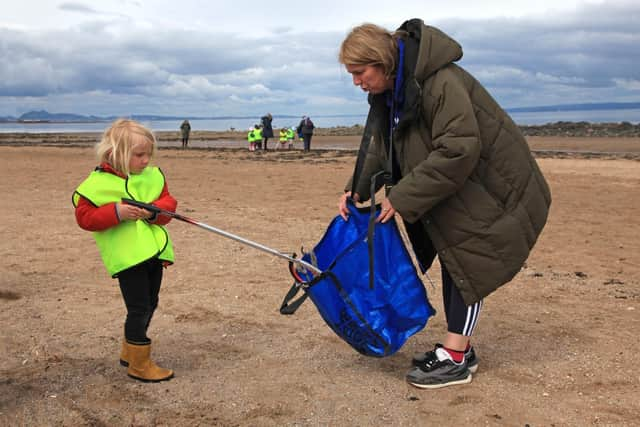Plastic pollution: We can all be part of David Attenborough's 'wonderful recovery' – Natasha Stewart
This article contains affiliate links. We may earn a small commission on items purchased through this article, but that does not affect our editorial judgement.
However in the current climate crisis we knew we had to do more to honour the United Nations’ Convention on the Rights of the Child, which says “children have the right to a clean environment so that they will stay healthy”.
More than 80 per cent of plastic in the sea comes from the land, with about 1.5 million tonnes of microplastic alone estimated to enter the ocean every year. Those same seas are thought to provide our planet with 50 to 80 per cent of its oxygen, but they are being suffocated with plastics. Enough is enough, we decided it was time to make changes.
Advertisement
Hide AdAdvertisement
Hide AdSo in 2021, prior to the COP26 climate summit, we agreed an eco-pledge in line with Zero Waste Scotland’s ethos. Our pledge was to tackle the huge problem of plastic waste by making permanent, sustainable changes, focusing on cutting out non-recyclable plastics and microplastics.
This means, amongst other things, the children no longer use plastic tape, which has prevented over 1,400 metres of the stuff going into landfill each year. Consider that this is just from our one small nursery, and imagine how much is being used in nurseries and schools across the country. We no longer use glitter with the children instead making Christmas sparkles from granulated sugar. And we have stopped using sequins (easy to forget, but these are just plastic discs) or other small single-use plastics. These changes have been embedded into our daily routine.
Parental engagement is a huge priority and our parents are incredibly supportive. Responding to a questionnaire last term, 100 per cent of them agreed it was important for educational settings to make long-lasting changes to cut out plastics and microplastics. Parents also commented that we had inspired them to cut down at home.
Part of our eco-initiative involved widening our own and the children’s learning about the natural world, so we made links with the Marine Conservation Society’s educational programme. We are finding out about the different jobs to protect the ocean, the creatures who inhabit it and the positive actions we can do to help it. One of the things that inspired our MCS connection was their incredibly successful 2014 campaign to bring in the plastic carrier bag charge. Since that was introduced they’ve recorded a reduction of over 80 per cent in the number of plastic bags found on Scotland’s beaches. Small changes can have a big impact.
We believe this same ethos can transfer into educational settings across Scotland, and our children's environmental and sustainable learning should be mirrored with biodegradable, environmentally friendly and sustainable resources. We would like to help bring about a ban on glitter, fake ‘eco-glitter’ and other single-use plastics in nurseries and schools.


We want to raise awareness of the positive changes we can all make and to help others think about resources they use, where they come from and the potential impact on the environment. Small changes in everyday behaviour can bring about big, permanent improvements. To quote Sir David Attenborough, “in my lifetime I witnessed a terrible decline. In yours, you could and should witness a wonderful recovery”.
Natasha Stewart is an early years practitioner at Hope Cottage Nursery
Comments
Want to join the conversation? Please or to comment on this article.